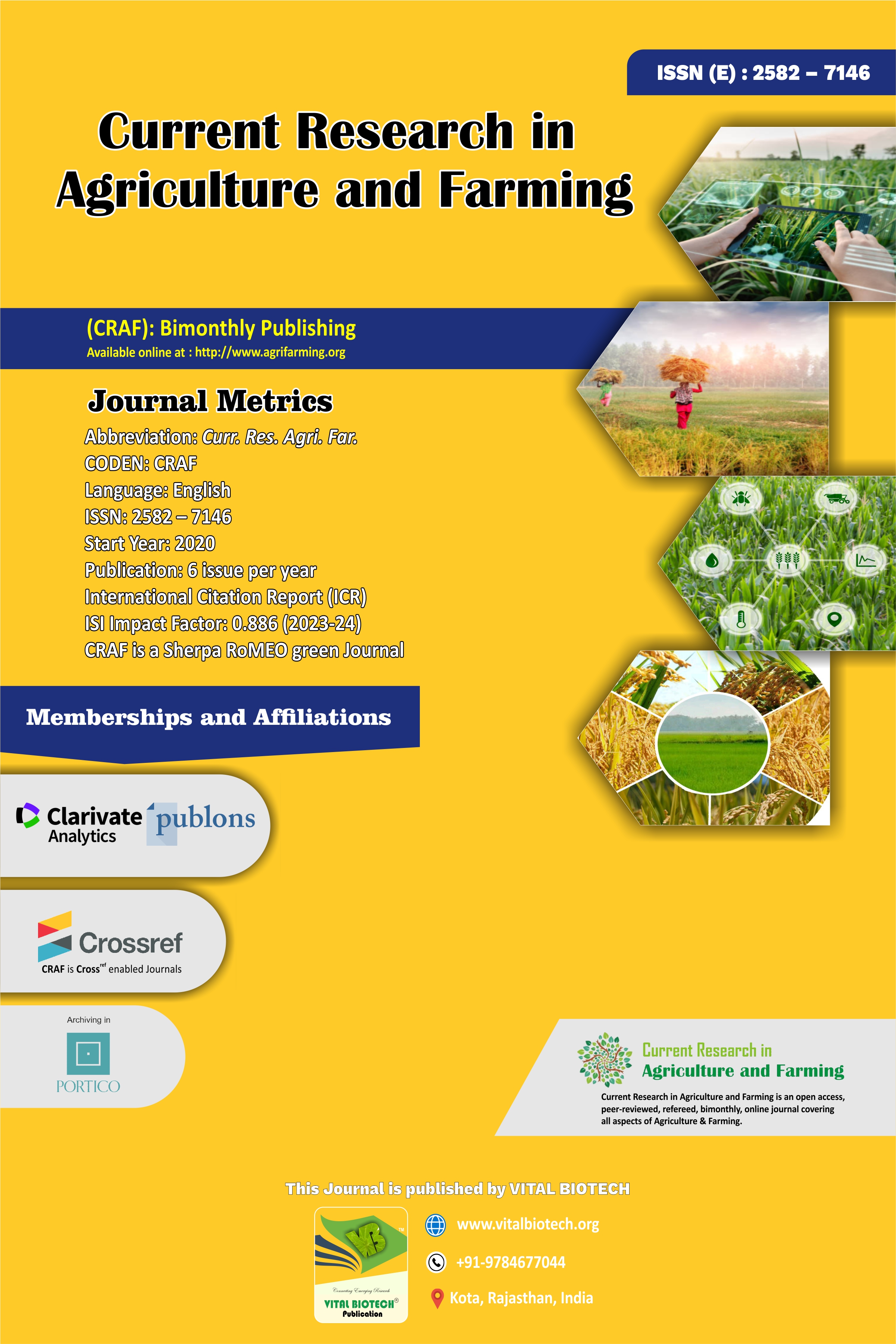

Current Research in Agriculture and Farming (CRAF)
Year : 2024, Volume : 5, Issue : 6
First page : (1) Last page : (30)
Article doi: : http://dx.doi.org/10.18782/2582-7146.240
Muhammad Ahmad1*, Muhammad Bilal2, Fasiha Shamsher Ali3, Rida batool4, Rameen Nawaz5, Ayesha Yousaf6, Zubair Zaheer7 and Sadam Hussain Hingorjo8
1Department of Agronomy, University of Agriculture, Faisalabad 38040, Pakistan
2Department of Soil Science, University of Agriculture, Faisalabad 38040, Pakistan
3Department of Zoology, University of Education, Township Lahore 54770, Pakistan
4Department of Botany, University of Agriculture, Faisalabad 38040, Pakistan
5Department of Biotechnology, MNS University of Agriculture Multan 66000, Pakistan
6Department of Botany, University of Agriculture, Faisalabad 38040, Pakistan
7Department of Horticulture, University of Agriculture, Faisalabad 38040, Pakistan
8Department of Plant Breeding and Genetics, Sindh Agriculture University Tandojam 70060, Pakistan
*Corresponding Author E-mail: ahmad391ch@gmail.com
Received: 19.10.2024 | Revised: 27.11.2024 | Accepted: 10.12.2024
ABSTRACT
This review describes the advances in plant breeding-from traditional to state-of-the-art molecular methods emphasizing the role of innovation in MAS, QTL mapping, and genomic selection to bring about changes in a transformative manner through CRISPR/Cas9 gene editing technologies. Such innovative approaches have impressively increased the rate of precision with which crop varieties are produced to possess desirable attributes for resistance to diseases, abiotic stress tolerance, and improved nutritional levels. The present pace of progress in crop improvement has been further accelerated by the integration of omics technologies, high-throughput phenotyping, and precision agriculture. However, this review also discusses some of the ongoing challenges with respect to ethical issues, intellectual property rights, and ecological effects. While emerging technologies like artificial intelligence, machine learning, and synthetic biology could probably underpin the future of plant breeding, this needs to be pursued with due consideration for ethical and socio-economic consequences to ensure global food security.
Keywords: Sustainable Food Systems, Engineering Technology, Food Processing Innovations, Artificial Intelligence in Agriculture, Digitalization in Agri-Food.
Full Text : PDF; Journal doi : http://dx.doi.org/10.18782
Cite this article: Ahmad, M., Bilal, M., Ali, F.S., Batool, R., Nawaz, R., Yousaf, A., Zaheer, Z., & Hingorjo, S.H. (2024). Advancements in Plant Breeding: New Techniques and Future Directions, Curr. Rese. Agri. Far. 5(6), 1-30. doi: http://dx.doi.org/10.18782/2582-7146.240

